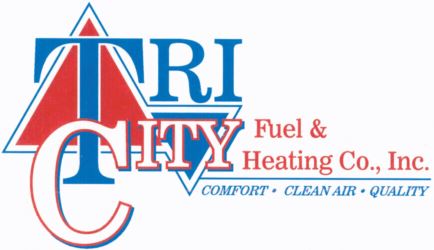
Buying your first home is an exhilarating experience. You’re likely juggling a dozen things or more to ensure you’re making the right choice. We believe that understanding your potential new HVAC system is vital. The property’s HVAC system represents a substantial investment and potential source of long-term costs, so being thorough should be a top priority for first-time homebuyers.
In this guide, we’ll share seven tips for discovering all there is to know about a home’s heating and cooling system. And if you want a deeper opinion from the experts, consider calling Tri City Fuel & Heating. Our staff can help you compare your options with industry insights that are second to none.
1. What Type of HVAC System Is It?
Start by determining what kind of HVAC system the home includes. Furnaces tend to last longer than air conditioners, and relatively new types of HVAC products like heat pumps can offer average life spans longer than ever. Knowing the make and specific model provides a clear understanding of how much routine maintenance it might need.
2. What Is the Current System’s Age?
It also helps to learn how old the HVAC system is when you're considering a new home. On average, HVAC systems tend to run for about 10-12 years. Knowing when it was installed helps you plan for possible repair needs or considerations if it might shut down for good. Older systems may be more vulnerable to problems, so fiscal planning for a replacement unit could be necessary sooner than you thought.
3. Does the System Have a Warranty?
Be sure to check the HVAC system is covered by a warranty. If it is, that's great news because it can lighten the load for maintenance expenses. HVAC warranties often cover parts and labor, but specifics will vary. Make sure you go over any terms that seem confusing to make sure you fully understand your coverage and any possible out-of-pocket costs.
4. When Was the Last Time It Received Maintenance?
Don't forget to check the maintenance history of the HVAC system, if that information is accessible. This service history can reveal if the system constantly broke down or how often a tune-up was scheduled. Ask about records for key tasks such as changing the air filter, which is a positive sign indicating regularly scheduled tune-ups.
5. What Are the Energy Efficiency Ratings?
Purchasing a home with a heating and cooling system with high energy efficiency can lead to smaller utility bills and less of an impact on the environment. Try and find the seasonal energy efficiency ratio (SEER) ratings for air conditioning and the annual fuel utilization efficiency (AFUE) for furnaces. Higher SEER ratings mean better cooling across the entire season, while high AFUE ratings illustrate that the fuel is efficiently converted into useable heat.
6. Can You Spot Trouble During Your Inspection?
Even without the know-how of an HVAC technician, it's still a good idea to inspect the HVAC system on your own. Keep an eye out for signs of problems that haven't been mentioned by the seller. This can mean bizarre noises, stubborn patches of the house that are too hot or cold and attempts at concealing any serious damage.
7. Have You Asked Your Local HVAC Professional?
If you're still hesitant to make an offer because of the condition of the HVAC system, it's wise to get a professional opinion from experienced HVAC technicians. They can spot things you might not, like leaking coolant, damage to the wiring or flawed ductwork.
A Chat with Tri City Fuel & Heating Simplifies Your Home-Buying Journey
Choosing your first home ought to be exciting, and Tri City Fuel & Heating wants to ensure it stays that way. Reach out with us at 803-265-4208. We can talk about how our HVAC services ease your mind, giving you what you need to dive into home-ownership with confidence.


